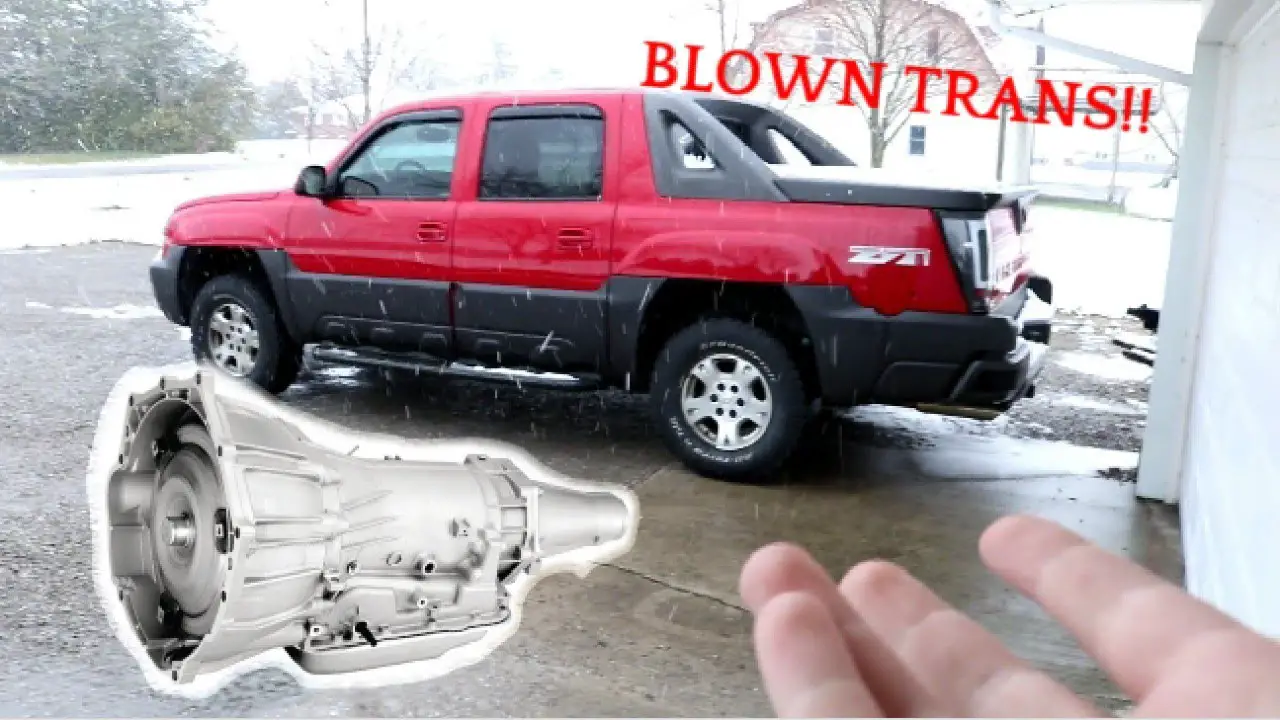Experiencing a lack of acceleration in your vehicle can be a concerning issue that affects both performance and safety. “Why is my car not accelerating at all?” and “why is my car not accelerating fast?” are common questions among drivers facing these challenges. This comprehensive guide aims to delve into the various reasons behind poor acceleration and offer insights into troubleshooting and potential solutions.
Also Read: Are EVAP Solenoids Causing Trouble in Your Vehicle? Solutions for Emission Control!
Common Scenarios of Poor Acceleration
-
Complete Lack of Acceleration
Encountering a complete lack of acceleration can be distressing for any driver. When a car refuses to accelerate at all, it raises concerns like “Why is my car not accelerating uphill?” or “why is my car not accelerating while driving?” These queries point directly to various underlying issues, spanning from fuel system problems to complications with the transmission or engine.
-
Slow Acceleration
A prevalent issue that frustrates drivers is slow acceleration, resulting in a gradual or sluggish increase in speed. Questions such as “Why is my car not accelerating smoothly?” or “why is my car not accelerating like it used to?” highlight the dissatisfaction stemming from this concern, specifically related to the vehicle’s decreased performance.
-
Manual Transmission Concerns
Drivers handling manual transmission cars may confront challenges linked to acceleration, often rooted in unique issues concerning the clutch, gear shifts, or the transmission system. The question “Why is my manual car not accelerating?” encompasses the particular difficulties specific to manual transmission vehicles.
-
Shaking or Vibrations During Acceleration
At times, vehicles display shaking or vibrations during acceleration, indicating potential problems with various components, such as the engine or drivetrain. Addressing the concern raised by “Why is my car shaking and not accelerating?” becomes crucial in identifying and resolving these specific issues.
-
High Revving with No Acceleration
A puzzling situation arises when the engine revs high, yet the car fails to accelerate correspondingly. This discrepancy implies a disconnect between the engine power and the wheels. “Why is my car revving high but not accelerating?” highlights this troubling issue.
-
Trouble Accelerating Uphill
A common issue for many drivers is the challenge of accelerating while driving uphill, often indicating multiple underlying problems. “Why is my car not accelerating uphill?” specifically addresses this struggle, pointing out the difficulties faced in such scenarios.
-
Inconsistent or Rough Acceleration
A car’s acceleration becoming inconsistent or rough, lacking its once-smooth performance, may signify potential malfunctions. Addressing the concerns related to erratic acceleration as asked in “Why is my car not accelerating fast?” becomes vital in troubleshooting these issues.
-
Decline in Overall Acceleration Performance

Over time, a vehicle’s acceleration may degrade, resulting in a noticeable decline in its overall performance. This decline prompts drivers to question the reasons behind it, as encapsulated in the query “Why is my car not accelerating like it used to?” This concern emphasizes the broader aspect of decreased performance over time.
Exploring Probable Causes

Addressing these issues requires an understanding of the potential causes behind poor acceleration:
-
Fuel System-Related Issues
Issues within the fuel system are critical factors that directly influence a vehicle’s acceleration and overall performance. The fuel pump, a vital component in this system, is prone to issues that can severely affect acceleration:
- Fuel Pump Problems
A malfunctioning or failing fuel pump is a primary culprit behind inadequate acceleration. When the fuel pump is compromised, it fails to deliver the necessary amount of fuel to the engine. This insufficiency significantly hampers the engine’s ability to produce power, resulting in a noticeable decline in the vehicle’s acceleration capability. Addressing fuel pump problems promptly is crucial in restoring the efficient delivery of fuel to the engine.
Another crucial aspect of the fuel system that affects acceleration is the fuel filter:
- Clogged Fuel Filter
The fuel filter serves to sieve out impurities and contaminants from the fuel before it reaches the engine. However, a clogged filter obstructs the smooth flow of fuel, directly impacting the engine’s performance. This hindrance leads to slow or, in severe cases, no acceleration at all. Regular maintenance to ensure the cleanliness and effectiveness of the fuel filter is essential for optimal vehicle performance.
-
Transmission and Gearbox Concerns
Transmission and gearbox problems play a pivotal role in a vehicle’s overall performance, particularly in relation to acceleration. Here are specific concerns that directly impact a vehicle’s ability to accelerate:
- Transmission Slipping
A slipping transmission presents a significant hurdle in power transmission from the engine to the wheels. In cases where the transmission slips, the transfer of power is compromised, leading to inefficient acceleration. This scenario hampers the vehicle’s ability to achieve the desired speed, creating a noticeable drag in acceleration. Timely identification and resolution of slipping transmission issues are crucial to restore seamless power transfer and thereby enhance the vehicle’s acceleration.
Also Read: Troubleshooting and Repairing Your AC Compressor Clutch
- Clutch Issues in Manual Cars
In manual transmission vehicles, the clutch plays a fundamental role in the engagement of gears. Challenges such as wear and tear or improper adjustment of the clutch can substantially impede the vehicle’s acceleration. A worn-out or improperly adjusted clutch leads to difficulties in gear engagement, resulting in a direct impact on the vehicle’s ability to accelerate smoothly. Addressing clutch-related issues promptly is crucial in ensuring proper gear engagement, thereby enhancing the vehicle’s acceleration capabilities in manual transmission cars.
-
Engine and Mechanical Problems
Engine and mechanical issues are critical factors that significantly impact a vehicle’s acceleration and overall performance. Various components within the engine system can cause notable hindrances to acceleration:
- Ignition System Malfunctions
Problems within the ignition system, such as faulty spark plugs, ignition coils, or other associated components, can lead to misfires. These misfires directly affect the engine’s efficiency, hindering the combustion process. Consequently, the car’s ability to generate power decreases, resulting in poor acceleration. Addressing these malfunctions in the ignition system is pivotal to ensure a smooth and efficient acceleration experience.
- Engine Misfires
Misfires in the engine are detrimental to its performance, resulting in a lack of power and irregular combustions. This lack of power directly translates into poor acceleration and often accompanies vibrations. Resolving engine misfires is essential to restore the engine’s power output and, subsequently, the vehicle’s acceleration capabilities.
- Air Intake or Exhaust Blockages
Clogs or blockages within the air intake or exhaust systems can restrict the engine’s ability to “breathe” efficiently. Adequate airflow is essential for optimal engine performance during acceleration. Any hindrance in this process affects the engine’s efficiency in burning fuel and can result in decreased power output, leading to poor acceleration. Regular checks and maintenance of these systems are vital to ensure the engine’s ability to function optimally during acceleration.
Tackling the Challenges

Resolving acceleration issues is a multifaceted process that requires a systematic and comprehensive approach. Addressing these problems effectively can significantly improve a vehicle’s performance, safety, and overall driving satisfaction. Here, we will explore in-depth the steps to tackle these challenges:
-
Diagnostic Check
Utilizing diagnostic tools or seeking professional assistance is the initial step in addressing acceleration issues. A diagnostic check involves using specialized equipment to scan the vehicle’s onboard computer system, which can reveal any error codes or issues related to the engine, transmission, or other critical components. This diagnostic process helps pinpoint the exact cause of the problem, offering valuable insights to guide the repair or maintenance efforts.
-
Routine Maintenance
Preventive measures are often the first line of defense against acceleration problems. Regular maintenance is essential for keeping your vehicle in optimal condition. Timely oil changes, fuel system inspections, and spark plug replacements are fundamental components of routine maintenance. Clean oil and well-maintained spark plugs are crucial for efficient engine performance, and a clean fuel system ensures that fuel delivery to the engine remains unobstructed. Consistent maintenance can help prevent potential issues and maintain a high level of vehicle performance.
-
Addressing Transmission Problems
In the case of acceleration problems linked to the transmission, consulting a professional is essential. Transmission-related concerns can significantly hinder a vehicle’s ability to accelerate. A slipping transmission or low transmission fluid levels can impair the transfer of power from the engine to the wheels. Addressing these issues typically involves fluid checks and, when necessary, potential repairs. A professional mechanic can accurately diagnose and rectify transmission problems, ensuring that the power transfer is smooth and efficient.
-
Clutch Adjustment (Manual Cars)
For those driving manual transmission vehicles, the clutch plays a vital role in gear engagement. Problems related to the clutch, such as wear and tear or improper adjustment, can significantly affect acceleration. It’s crucial to ensure that the clutch is properly adjusted to allow seamless engagement during gear shifts. This adjustment ensures that the power generated by the engine is effectively transferred to the wheels, enhancing acceleration performance in manual cars.
-
Professional Inspection
In cases where acceleration issues persist, or when more complex problems are suspected, consulting a certified mechanic or technician is crucial. Professional inspection is a comprehensive assessment of the vehicle, including the engine, transmission, fuel system, and other critical components. A certified mechanic has the expertise and tools to identify and rectify complex issues that might not be evident through routine maintenance or basic diagnostic checks. Professional inspection is the final step in addressing acceleration problems, as it ensures that any underlying concerns are thoroughly examined and resolved.
FAQs About Car Acceleration Issues
What causes poor acceleration in a car?
Poor acceleration in a car can stem from various factors. Common reasons include issues within the fuel system, such as a failing fuel pump or clogged fuel filter, transmission problems like slipping gears, mechanical concerns such as engine misfires, or even clutch problems in manual transmission vehicles. Any malfunction within these systems can disrupt the engine’s ability to generate power efficiently, leading to poor acceleration.
What could cause an engine not to accelerate correctly?
Several issues could result in an engine not accelerating correctly. Problems with the fuel system, such as a faulty fuel pump or clogged fuel filter, hinder the engine’s ability to receive sufficient fuel, impacting its performance. Transmission-related issues, such as slipping gears, interrupt the transfer of power from the engine to the wheels, affecting acceleration. Engine misfires, often caused by faulty spark plugs or ignition system malfunctions, can also contribute to poor acceleration.
How do you fix the loss of power when accelerating?
To address a loss of power when accelerating, it’s essential to diagnose the specific cause. Start by checking the fuel system, ensuring the fuel pump is functioning correctly and the fuel filter is clean. Inspect the transmission for any issues, including checking fluid levels and addressing slipping gears. Engage in routine maintenance, such as replacing spark plugs and ensuring the engine is in good working condition. Seeking professional help for a thorough diagnostic check can identify the exact problem and facilitate appropriate repairs.
Why does my car hesitate and jerk when accelerating?
A car hesitating or jerking during acceleration can be a result of various issues. It could indicate problems within the fuel system, such as a clogged fuel filter or a failing fuel pump, leading to fuel delivery interruptions. Transmission-related concerns, like slipping gears, can also cause hesitation or jerking during acceleration. Additionally, engine misfires or issues with the ignition system can contribute to this problem, interrupting the combustion process and leading to irregular power delivery, manifesting as hesitations or jerks during acceleration.
Conclusion
Maintaining a vehicle’s optimal acceleration performance is crucial for both safety and driving satisfaction. Recognizing and addressing acceleration issues promptly not only ensures a smoother driving experience but also prevents potential long-term damage to your vehicle. By understanding the various reasons behind poor acceleration and taking appropriate steps to rectify these issues, drivers can enjoy a more reliable and efficient driving experience.




